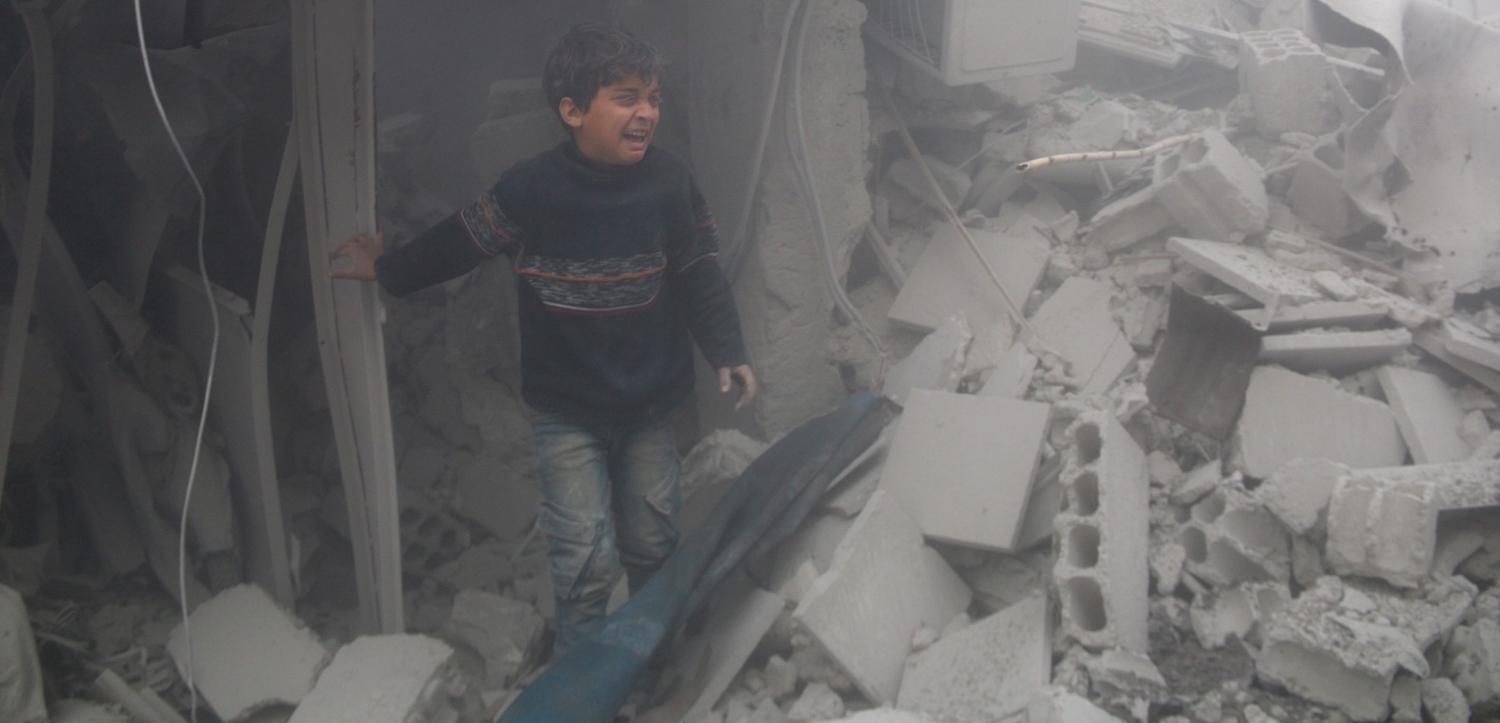A little over a year ago, after the fall of eastern Aleppo in Syria, I asked “What exactly did the defence of East Aleppo achieve?”:
Surely it was apparent from the time the encirclement was completed and the attempt to break the siege failed that only one outcome was possible: the defeat of the armed groups inside east Aleppo. Knowing that continuing to fight amongst the civilian population would only lead to more civilian deaths, and that the Syrian forces would not stop until they had pressed home their military advantage, why didn’t the world’s media shift some focus onto the armed groups inside Aleppo and ask what they were achieving by being there? A media campaign that focused on the futility of fighting on asked tough questions of the armed groups … and called for the fighters to negotiate surrender and safe passage under UN auspices [and] may well have achieved something. It may have helped to save civilian lives.
Rather than parrot opposition groups’ social media claims and despair at the West’s unwillingness to intervene militarily to save civilian lives, in situations as hopeless as Aleppo the media may be better served by holding a spotlight on the armed groups. The media could continue to criticise the Syrian regime’s military onslaught, but if the aim is to save civilian lives it is only fair to ask why the armed groups seemed intent on fighting to the last civilian in Aleppo.
Delete the name “Aleppo”, insert “Ghouta”, and I’d argue that the same principle applies. Ghouta has become the latest focus of this relentless conflict. A patchwork of opposition groups are in Ghouta – Islamist, al-Qaeda-aligned, and “nationalist” – and fighting has broken out during the past year, with casualties among all those groups and civilians.
But in the media (both mainstream and social), there is a near complete absence of references to the rebel groups in Ghouta and what they’re seeking to achieve. Indeed, audiences could be forgiven for thinking that there were no armed elements within east Ghouta.
Rather, the unfolding humanitarian crisis is presented simply a case of civilians, and only civilians, dying at the hands of the Syrian regime. Armed groups, such as the jihadist Jaysh al-Islam (Army of Islam), may as well not exist.
The Syrian Network for Human Rights issued a report this week documenting attacks in Ghouta over the past three months without recording the death of one opposition fighter. A quick view of the Twitter feed of the Syrian Observatory for Human Rights reveals a similar lack of reference to opposition casualties in Ghouta.
Indiscriminate bombing by Syria and Russia of targets within eastern Ghouta is in breach of international humanitarian law. But so is deploying armed elements among the civilian population. Is one side more in breach of the law than the other, or are both culpable, perhaps equally?
Although this is a reasonable question to ponder, the focus here should be on how best to stop the killing in seemingly hopeless situations. Ceasefire calls are fine, and Washington and the UN have each called for a halt in fighting. But the ceasefires signed recently have failed.
If we have learned anything from the hand-wringing response to Aleppo, it is that once the regime has isolated fighters in an area, imposed a siege, and can bludgeon the area into submission, the outcome is inevitable. Many of the armed groups are not of an ideological persuasion that finds much support in the West.
Rather than simply reporting as though the anti-regime groups fighting in Ghouta have neither identity nor agency, the media could examine their identities and aims more closely and apply public pressure on the armed groups to account for the impact their presence is having on civilians. This could encourage the armed groups to negotiate with the regime to bring an end to the killing.
Naturally, this may appear offensive to many, as rewarding the Syrian regime for their brutal tactics. But as with Aleppo, a tipping point will be reached in Ghouta and render the outcome inevitable. The presence of armed groups (many of whom are locals) therefore fulfils no rational military purpose.
But it does prolong the misery of the population and ensure that more civilians will be killed. If we are truly committed to saving civilian lives in Ghouta, then a more pragmatic and hard-headed approach is required, advocating for a negotiated solution in which the armed groups lay down their arms, or leave. This will require media focus on the actions and aims of not only the Syrian regime and its allies but also the armed groups.

